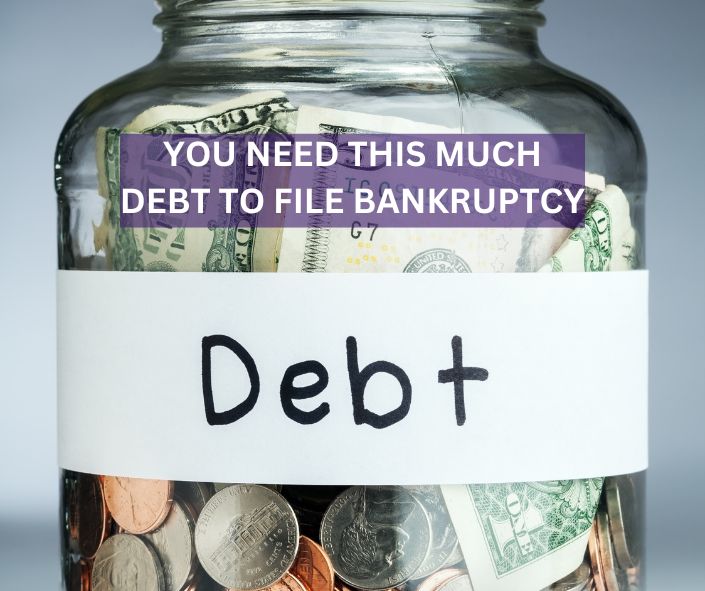How Much Debt To File For Bankruptcy
Only some people who are overwhelmed with repaying debt can file for bankruptcy. Your inability to repay debt is not always because your debt is huge, it could be because it is becoming harder to repay it for other reasons. But there is no minimum debt amount required for you to file for bankruptcy.
Whether or not you should file for bankruptcy is determined by your circumstances, not the amount of debt you owe.
When To File For Bankruptcy
 While filing for bankruptcy can get you out of serious debt, it’s not always the right tool to use if you are overwhelmed by debt.
While filing for bankruptcy can get you out of serious debt, it’s not always the right tool to use if you are overwhelmed by debt.
Before you file, consider your ability to repay your debts outside of bankruptcy and whether the option of negotiating your debt with your creditor is available. Look at what the bankruptcy system offers in terms of the types of debts you can discharge if you decide to file.
Don’t forget to consider all the other circumstances you face. For Chapter 13 bankruptcy, you cannot file if you owe more than $465,275(for 2022 to 2025) of unsecured debt and $1,395,875 of secured debt.
Filing For Bankruptcy To Eliminate Debts
Bankruptcy can help eliminate certain types of debts. Debts that can be eliminated through bankruptcy are often unsecured debts such as credit card debt, medical bills, rent, utility bills, and more.
Unsecured debts are debts without collateral. These debts are eliminated or discharged after filing for bankruptcy which means you no longer have to repay them.
There are also debts that you have to repay even if you file for bankruptcy. They are called nondischargeable debts. They include tax debts, debts arising from criminal activities, child support, alimony, debts resulting from fraud, student loans, and more.
Factors To Consider When Thinking About Filing For Bankruptcy
- Filing for bankruptcy is a major decision because it can completely transform your finances or your standard of living. Here are some factors that can help you decide whether to file for bankruptcy:
- File for bankruptcy if most of your debts are unsecured debt. Since there is no minimum debt to file for bankruptcy, you can file for bankruptcy for debts such as payday loans, medical bills, and credit card debt.
- The cost of filing bankruptcy.
- You need to file for bankruptcy if you have fallen behind secured debts such as mortgage or car loans. Bankruptcy will allow you to keep your property while you continue making payments at reduced interest rates within 3 to 5 years
- You are eligible for bankruptcy if you are unemployed and struggling to repay your debts. Bankruptcy can help discharge some of your unsecured debts. Chapter 13 bankruptcy reorganizes your debts so that you can stay current with your secured debts. Even if you are employed you can still file for Chapter 7 or Chapter 13 to retain your property such as a house and car.
Filing for bankruptcy is not as costly as you may expect. All you need to worry about is the court filing fees and lawyer fees.